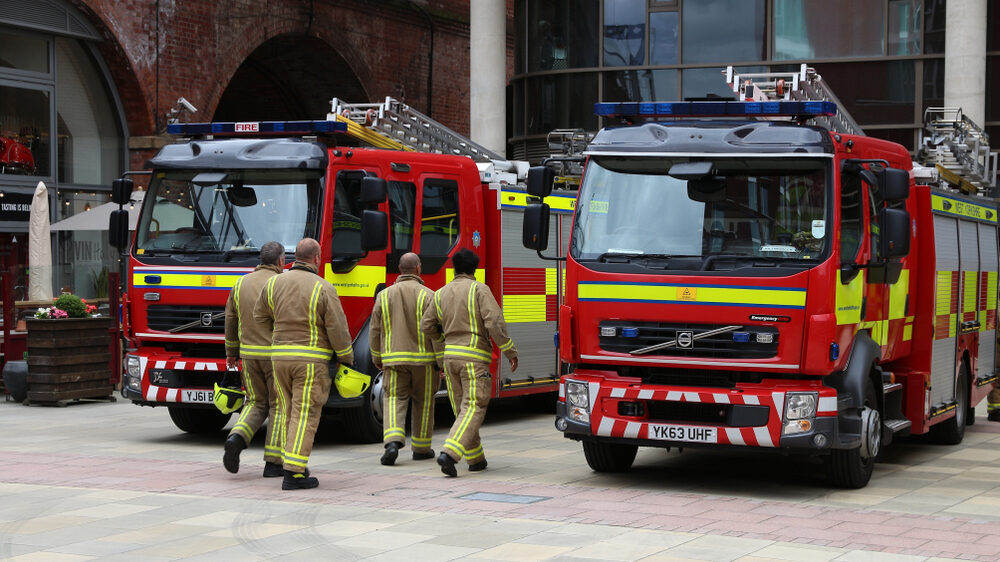UK firefighters vote in favour of strike action
- January 30, 2023
- 4:07 pm


Iain Hoey
Share this content
Firefighters across the UK have delivered a decisive mandate for strike action, with 88% voting Yes on a 73% turnout. Two separate simultaneous ballots, in Northern Ireland and among Control Room staff in the North West of England, also delivered strong results, with 94% of members In Northern Ireland voting in favour of action.
In the hope of averting strike action, the Fire Brigades Union has given the government and employers ten days to come forward with an improved offer which could be put to a vote of members.
If the strikes go ahead, they would would be the first nation-wide fire strike over pay since 2003. FBU members rejected a below-inflation 5% pay offer in November last year.
Polling shows that public support for strike action by firefighters is strong – by around 2 to 1 with 58% of the public backing strike action, while only 33% oppose it.
‘An absolute last resort’
Matt Wrack, General Secretary of the Fire Brigades Union, said: “Firefighters across the UK have spoken. The Fire Brigades Union has a decisive mandate for strike action.
“This is an overwhelming vote for strike action against an offer which would mean further significant cuts to real terms wages for firefighters and control room staff. They have already lost at least 12% of the value of their pay since 2010.
“This is an absolute last resort for our members. The responsibility for any disruption to services lies squarely with fire service employers and government ministers.
“Rishi Sunak’s government has refused to make funding available for a decent pay offer to firefighters and control staff.
“Firefighters were among Britain’s Covid heroes who kept frontline services going during the pandemic. The Prime Minister has badly misjudged the public mood by imposing pay cuts on key workers.
“Our members risk their health and safety, and sometimes their lives, round the clock to keep people safe and serve their communities. However, with inflation and energy bills rocketing, they are now increasingly struggling to pay the bills or to afford the basics.
“The government and the employers have the power to stop strikes from happening by making a credible offer that can resolve this dispute. The ball is in their court.
“We have delayed calling strikes to allow the employers to meet us and to make a new offer. I hope they take that opportunity. Otherwise, in the coming weeks, we intend to announce a series of strike dates and industrial action.”
‘Developing ongoing contingency plans’
Scottish Fire and Rescue Service Interim Deputy Chief Officer Stuart Stevens has assured the public that any emergency where there is a risk to life or a clear sign of fire will be responded to during any strike action.
Interim DCO Stevens said: “I wholly support a pay increase for our firefighters and absolutely recognise the right of firefighters to strike.
“The FBU represents many firefighters in Scotland and therefore any strike action will have an impact on our emergency response.
“As a fire and rescue service, we have a legal and moral duty to provide an emergency response to the communities of Scotland, including during periods of industrial action.
“I want to assure the public that we are developing contingency plans to enact during any strike and we will respond to any emergency where there is a risk to life or a clear sign of fire.”
Interim DCO Stevens added: “We know that the outcome of this ballot may cause concern or feelings of uncertainty.
“This is an unfolding situation which we are closely monitoring and will continue to engage with the FBU, National Joint Council, Scottish Government and other key stakeholders.
“We will know more about what this ballot means for us as a Service in the coming weeks and we will keep the public and businesses up to date.
“We also have a wealth of key safety advice on our website – firescotland.gov.uk – to help you stay safe at home, outdoors and in the workplace.”



